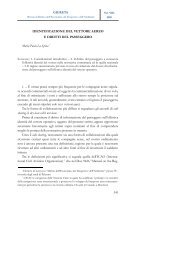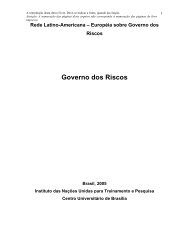As EU law is more complex, different types of applicability have to be developed, in particular on the validity and the direct applicability of the act. As the work for restructuring such a huge database as EUR-Lex is quite high, a (semi)automatic solution has to be developed in order to pursue this approach. Additional research is necessary for deining the various layers of validity and applicability. tERmINOLOGy At present, four instruments of terminology are available in EUR-Lex: the Eurovoc thesaurus, classiication headings, subject matters and case-law directory code. the best legal quality can be found in the case-law directory code. quite useful classes of legislation are available with the classiication headings. the Eurovoc thesaurus has its usefulness in general searching. however, weaknesses are evident in legal searches due to an insuficient number of legal concepts. thus, Eurovoc should be extended with a lexical ontology that contains the required high number of legal terms. A conceptual structure must also be developed for these terms. Such an instrument would greatly improve linguistic support for searching. Deinitions of and relations between the concepts would help lay users and less-experienced lawyers. Such a terminology could be used for a reinement of queries, cross-linguistic retrieval and a multipurpose dictionary. So far, lexical ontologies on European law have been limited to speciic purposes (e.g. the LOIS project). A full-scale lexical ontology would require a high level of resources that need a stronger focus of lawyers on terminology questions. thus, hopes rest on (semi)automatic analysis in order to extract the suficient number of concepts from a representative text corpus. CONCLUSIONS today, EUR-Lex is an excellent text provider but an insuficient metacontent provider. the main reason is that legal ontologies are insuficiently developed for such a large application. It is not advisable to move immediately to a full-scale legal ontology. Intermediate steps are very helpful and much easier to take. Examples are the described navigators: legislative/juridical, citations, layers of the legal order and terminology. 01_2007_5222_txt_ML.indd 148 6-12-2007 15:14:03
WORKSHOP REfER<strong>EN</strong>CES Bench-Capon, t. J. m. and Visser, P. R. S., ‘Ontologies in legal information systems: the need for explicit speciications of domain conceptualisations’, Proceedings of the 6th ICAIL (melbourne, Victoria, AU, 1997), ACm Press, New york, Ny, 1997, pp. 132–141. Berners-Lee, t. et al., ‘the semantic web’, Scientific American, Vol. 284 (05/2001), Scientiic American Inc., New york, Ny, 2001, pp. 34–43. Breuker, J. and hoekstra, R., ‘Direct: ontology-based discovery of responsibility and causality in legal case descriptions’, Proceedings of the 17th JURIX (Berlin, <strong>DE</strong>, 2004), IOS Press, Amsterdam et al., NL, 2004. Brüninghaus, S. and Ashley, K. D., ‘Improving the representation of legal case texts with information extraction methods’, Proceedings of the 8th ICAIL (St. Louis, mO, 2001), ACm Press, New york, Ny, 2001, pp. 42–51. Casanovas, P., Biasiotti, m. A., francesconi, E. and Sagri, m. t. (eds), Proceedings of LOAIt 07, II. workshop on legal ontologies and artiicial intelligence techniques, ICAIL-07 workshop, Stanford, CA, 2007. Dini et al., ‘Cross-lingual information retrieval using a wordNet architecture’, Proceedings of the 10th ICAIL (Bologna, It, 2005), ACm Press, New york, Ny, 2005, pp. 163–167. Gonçalves, t. and quaresma, P., ‘Is linguistic information relevant for the classiication of legal texts?’, Proceedings of the 10th ICAIL (Bologna, It, 2005), ACm Press, New york, Ny, 2005, pp. 168–176. Gruber, t. R., ‘A translation approach to portable ontology speciications’, Knowledge Acquisition, Vol. 5/2 (1993), Academic Press, London et al., 1993, pp. 199–220. hachey, B. and Grover, C., ‘A rhetorical status classiier for legal text summarisation’, Proceedings of the ACL-04 text Summarization Branches Out workshop (Barcelona, ES, 2004), pp. 35–42. hafner, C. D., An information retrieval system based on a computer model of legal knowledge, UNI Research Press, Ann Arbor, 1977. hirst, G., ‘Ontology and the lexicon’, in S. Staab and R. Studer (eds), Handbook on ontologies, Springer, Berlin-heidelberg, <strong>DE</strong>, 2004, pp. 210–229. Koivunen, m.-R. and miller, E., ‘w3C semantic web activity’, Proceedings of the Semantic web Kick-off Seminar (helsinki, fI, 2001), hIIt Publications 2002/1, helsinki, fI, 2002, pp. 27–-43, available free at http://www.w3.org/2001/12/semwebin/w3csw. Kralingen, R. w. van, ‘frame-based conceptual models of statute law’, Ph.D. thesis, University of Leiden, the hague, NL, 1995. 148 | 149 01_2007_5222_txt_ML.indd 149 6-12-2007 15:14:03
- Page 1 and 2:
Speeches and proceedings 25th anniv
- Page 3 and 4:
25 YEARS OF ONLINE THE EVENT 25 ANN
- Page 5 and 6:
INTRODUCTION APRèS LA PUBLICAtION
- Page 10 and 11:
wORKShOP Legal XmL — Use of XmL f
- Page 12 and 13:
01_2007_5222_txt_ML.indd 12 6-12-20
- Page 14 and 15:
Cette énumération des participant
- Page 16 and 17:
01_2007_5222_txt_ML.indd 16 6-12-20
- Page 18 and 19:
sion a fait de l’initiative «mie
- Page 20 and 21:
II. «mIEUX LéGIféRER» Et L’AC
- Page 22 and 23:
01_2007_5222_txt_ML.indd 22 6-12-20
- Page 24 and 25:
• et L. E. Allen, spécialiste de
- Page 26 and 27:
La création d’un réseau de coop
- Page 28 and 29:
01_2007_5222_txt_ML.indd 28 6-12-20
- Page 30 and 31:
Stele so weit nähern, dass er den
- Page 32 and 33:
nicht autorisierte Abschrift der of
- Page 34 and 35:
„Die Anforderungen und Bedingunge
- Page 36 and 37:
hat, „Zugänglichkeit und Verstä
- Page 38 and 39:
Old testament. this passage is set
- Page 40 and 41:
this checkpoint is given a Priority
- Page 42 and 43:
knowledge of the law. Adults, child
- Page 44 and 45:
It is a dificult task to predict th
- Page 47 and 48:
MEETING OF THE COUNCIL WORKING PART
- Page 49 and 50:
SOUVENIRS D’UNE DÉLÉGUÉE NATIO
- Page 51 and 52:
EUR-LEX TODAY AND TOMORROW After mo
- Page 53 and 54:
MEETING OF THE COUNCIL WORKING PART
- Page 55 and 56:
MEETING OF THE COUNCIL WORKING PART
- Page 57 and 58:
MEETING OF THE COUNCIL WORKING PART
- Page 59 and 60:
DOCUMENT ANALYSIS AND LEGAL INFORMA
- Page 61 and 62:
MEETING OF THE COUNCIL WORKING PART
- Page 63 and 64:
MEETING OF THE COUNCIL WORKING PART
- Page 65 and 66:
MEETING OF THE COUNCIL WORKING PART
- Page 67 and 68:
LIFE AS A CELEX HOST INtRODUCtION I
- Page 69 and 70:
MEETING OF THE COUNCIL WORKING PART
- Page 71 and 72:
MEETING OF THE COUNCIL WORKING PART
- Page 73 and 74:
CONCLUSIONS first, I would like to
- Page 75 and 76:
En tant que déléguée de la Grèc
- Page 77 and 78:
LEGAL XML — USE OF XML FOR THE PR
- Page 79 and 80:
WORKSHOP • publishing technologie
- Page 81 and 82:
WORKSHOP • NiR and the NiR editor
- Page 83 and 84:
WORKSHOP tors, thus providing the o
- Page 85 and 86:
WORKSHOP 3. SCOPE the expected resu
- Page 87 and 88:
WORKSHOP gestützt auf die Verordnu
- Page 89 and 90:
WORKSHOP which describe general com
- Page 91 and 92:
WORKSHOP Arithmetic Poetry. Ameri
- Page 93 and 94:
WORKSHOP Metadata fields collected
- Page 95 and 96:
WORKSHOP tion of the common metadat
- Page 97 and 98: ELECTRONIC PUBLISHING OF LEGISLATIO
- Page 99 and 100: WORKSHOP the working group has focu
- Page 101 and 102: WORKSHOP • the integrity of a rec
- Page 103 and 104: WORKSHOP Examples of different appr
- Page 105 and 106: WORKSHOP conidence uses certiicatio
- Page 107 and 108: WORKSHOP 3. LEGISLAtIVE ISSUES CONC
- Page 109 and 110: WORKSHOP signature, is only publish
- Page 111 and 112: WORKSHOP 3.2.4. ARE THERE ACTS, DEC
- Page 113 and 114: WORKSHOP Electronic signature of PD
- Page 115 and 116: WORKSHOP formats are available: htm
- Page 117 and 118: WORKSHOP the chain of conidence is
- Page 119 and 120: WORKSHOP the object of SOLON is to
- Page 121 and 122: WORKSHOP 5. A secure session is now
- Page 123 and 124: WORKSHOP ESTONIA A certiicate-based
- Page 125 and 126: WORKSHOP ertheless, some assistance
- Page 127 and 128: WORKSHOP (b) If the system is XmL-b
- Page 129 and 130: COHERENCE OF TERMINOLOGY AND SEARCH
- Page 131 and 132: WORKSHOP nym for legal categories,
- Page 133 and 134: WORKSHOP Article 4(2) of Directive
- Page 135 and 136: WORKSHOP the tool could prove to be
- Page 137 and 138: EUR-LEX: FROM DATA STRUCTURES TO LE
- Page 139 and 140: WORKSHOP duces a ‘magic result’
- Page 141 and 142: WORKSHOP sion of the current one, i
- Page 143 and 144: WORKSHOP for test and demonstration
- Page 145 and 146: WORKSHOP focus on text representati
- Page 147: WORKSHOP As a irst step, the existi
- Page 151 and 152: TEXT MINING 1. INtRODUCtION the gro
- Page 153 and 154: WORKSHOP uments. the tasks and obje
- Page 155 and 156: WORKSHOP In order to create more ef
- Page 157 and 158: WORKSHOP jects. the problem, howeve
- Page 159 and 160: WORKSHOP space and their maintenanc
- Page 161 and 162: WORKSHOP the success of the impleme
- Page 163 and 164: WORKSHOP Thesauri thesauri are cont
- Page 165 and 166: WORKSHOP knowledge which are reusab
- Page 167 and 168: WORKSHOP fuhr, Norbert. 2004. Infor
- Page 169 and 170: WORKSHOP Oberle, Daniel; Staab, Ste
- Page 171: En tant que déléguée de la Grèc
- Page 175 and 176: PRESS REVIEW / REVUE DE PRESSE " 17
- Page 178 and 179: 01_2007_5222_txt_ML.indd 178 6-12-2
- Page 180: 01_2007_5222_txt_ML.indd 180 6-12-2



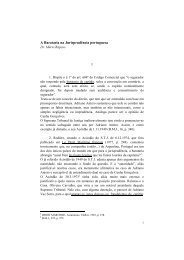
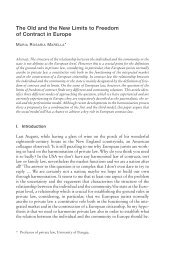
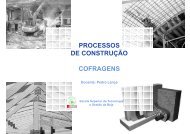
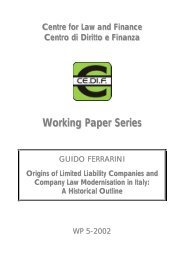
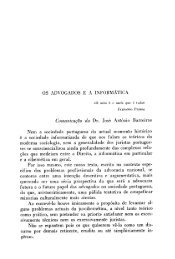
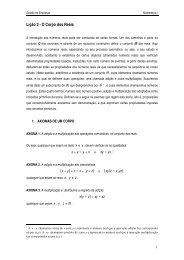
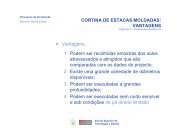
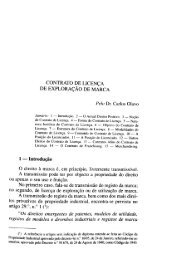
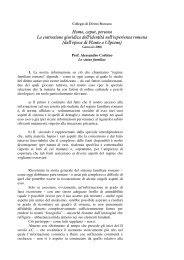
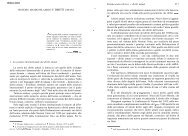

![Luigi Sapio Nozione di islām La parola “islām” [ ] è il mas.dar1 ...](https://img.yumpu.com/15836073/1/185x260/luigi-sapio-nozione-di-islam-la-parola-islam-e-il-masdar1-.jpg?quality=85)
